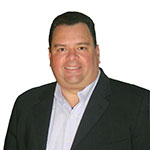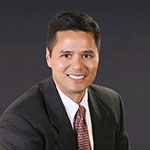Manny Gonzalez was thirty-seven when an unexpected and terrifying ordeal derailed his life. He then shifted his focus away from money and towards the influence he was having on others. Today, he’s the president of the National Society of Hispanic MBAs (NSHMBA), initially developed to empower and encourage Hispanics to pursue master’s degrees in business. In 2015, the NSHMBA expanded that mission to empower all Hispanics to achieve educational, social, and economic power by opening undergraduate and high school chapters. “I love the organization because it aligns perfectly with my values,” says Gonzalez, who tells Hispanic Executive his journey of discovery.
You achieved tremendous success very early in life. To what do you attribute that?
The foundation of who I am today is the result of the example I had in my father. He was a maintenance worker in factories and sometimes got called in at 2 a.m. but was always there for his family. I learned my work ethic from him. Early on in my career, I was a workaholic, putting in eighty hours a week. By the time I was twenty-four, I was the general manager of a water park in Houston, with hundreds of employees and millions of dollars in revenue.
What were some of the steps you took so early in your career to thrive in that industry?
First, I had a great mentor in Gary Story, who eventually became president of Six Flags. He took me under his wing and ensured that I took the right steps to develop my career in the entertainment industry. From the start, I gained training in marketing, finance, and operations, which is unique in a career. Usually, people choose just one of those tracks. But with that skillset, I was able to take on some great projects and build on my experience. For example, we turned a company with one theme park location into a company that had thirty-nine theme parks in eight countries. When I was thirty-five, I led the company’s $100 million investment in a Six Flags in Mexico.
But that was also a turning point for you, correct?
Yes, and looking back, I wasn’t mentally or spiritually ready to appreciate true success. There’s so much more to life than business, and I had ignored everything else. Then in 2001, the worst event of my life happened. My wife and children were kidnapped in Mexico. My company had made a very public $100 million investment in the country, and I got a lot of media exposure. The kidnappers thought I was a good target. They had my family for 15 days. But the worst event of my life actually turned me around and made me better. It showed me what’s really important.
Where did you turn for support in those days?
After my family was back home and safe, I was still really shaken. I turned to another mentor of mine, Doug Smith. Professionally, he is an incredibly successful individual—he was CEO of Kraft General Foods Canada, Borden Foods, and Best Brands— and he is someone I admire personally. I met him at an event, and he started mentoring me. One day, he invited me to breakfast. It turned out to be a speaking event, and when introduced, Mr. Smith was referred to as a terminally ill cancer patient. I had no idea he was dying, and my relationship with him completely changed at that point, from professional mentoring to life coaching. He taught me so much at a time I desperately needed change.
So how did you change?
I realized that what truly defines success is not how much money you make, but what kind of impact you have on the world. It took three years to decide what I wanted to do with my life based on that knowledge. I left Six Flags and went to work on the expansion of the Columbus Zoo and Aquarium into a 580-acre regional entertainment complex with a water park, theme park, and golf course. Working for a community-based nonprofit organization was a cause bigger than me. I learned to live life with a purpose, to make this world a little bit better.
How did you end up at NSHMBA?
I was doing some consulting work and met an individual on the organization’s corporate advisory board. He said NSHMBA needed a CEO like me, someone with change-management experience. I wasn’t sure about the industry, but he said a leader is a leader anywhere.
What has your time there meant to you?
I feel blessed, because at a time of my life when I wanted to make a difference, I was able to make a difference in my community, helping Hispanics through the process of education and leadership development. It has been an incredible four years.
What does the NSHMBA provide its members?
Beyond the programs—networking, scholarships, and job opportunities—it’s relationships. When I started, I travelled to every chapter and asked the officers what was the best thing NSHMBA had done for them. Many said their jobs, but one young lady said her boyfriend. It was funny, but it was true because with thirty thousand members supporting each other, we’re a family.

